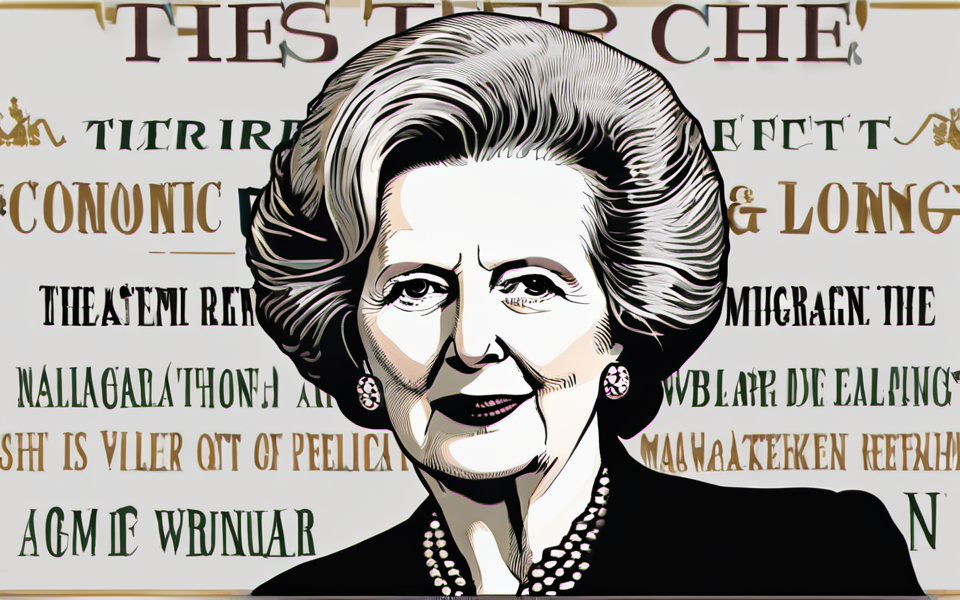Imagine a time when the UK faced severe economic troubles—high inflation, unemployment, and a general sense of uncertainty. Now, picture a determined leader stepping up with bold ideas to turn things around. This leader was none other than Margaret Thatcher, and her economic reforms left a mark that is still felt today.
The Iron Lady Steps In
Margaret Thatcher earned the nickname “The Iron Lady” for her unyielding approach to politics and governance. When she became the Prime Minister in 1979, the UK was in a dire financial state. The economy was struggling with high inflation rates and soaring unemployment. Thatcher believed that strong and decisive action was necessary to revive the nation.
One of her first major decisions was to cut government spending. She argued that the country was living beyond its means, and trimming the budget was the first step to recovery. While this decision was controversial and led to immediate job losses, Thatcher stood firm. She believed that short-term pain would lead to long-term gain.
Privatization and Deregulation
Another cornerstone of Thatcher’s economic reforms was privatization. She believed that the government should not be in the business of running companies. Instead, she felt that privatizing state-owned enterprises would make them more efficient and competitive. Industries such as telecommunications, gas, and electricity were sold to private investors.
Deregulation was another key aspect of her plan. By reducing the amount of red tape, Thatcher aimed to create a more dynamic and competitive market. This was particularly evident in the financial sector, where deregulation led to what was known as the “Big Bang” in 1986. The result was an influx of new players and innovations in the market.
Labor Market Reforms
Thatcher also took on the powerful trade unions, which she believed were hampering economic progress. Strikes and industrial actions were frequent, causing disruptions. She introduced laws that limited the power of these unions, making it more difficult for them to call strikes and take other industrial actions.
This was met with heavy resistance. The miners’ strike of 1984-1985 was a particularly intense conflict, lasting for almost a year. In the end, however, Thatcher prevailed. Her actions significantly reduced the influence of trade unions in British politics and economic life.
Long-Term Effects and Criticisms
Thatcher’s economic reforms undeniably transformed the British economy. Inflation was tamed, unemployment eventually fell, and the economy entered a period of sustained growth. However, her policies also had their share of critics and controversies.
One major criticism was that her policies led to increased inequality. While the affluent benefited from lower taxes and a booming financial sector, many working-class communities felt left behind. The decline of traditional industries such as coal mining and manufacturing led to job losses and economic decline in certain regions.
Despite the controversies, Margaret Thatcher’s legacy endures. Her economic policies laid the groundwork for modern Britain’s economy, emphasizing free markets, privatization, and reduced government intervention. Whether you agree with her methods or not, there’s no denying the lasting impact she had on the UK’s economic landscape.






